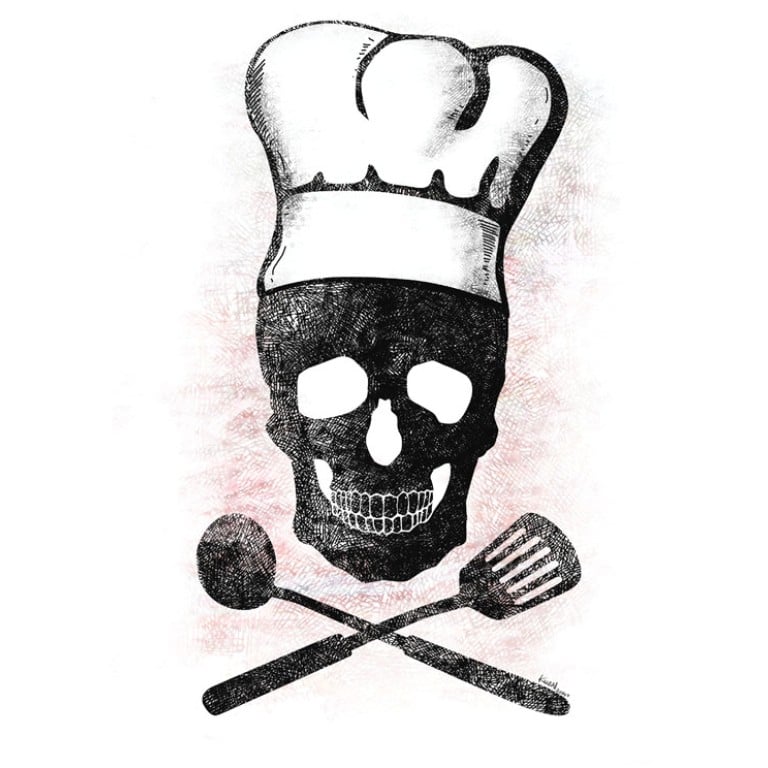
More robust checks will rebuild Hongkongers' trust in food safety
Kent Fung says recent scares over tainted oil and expired meat should spur our food regulators to impose a more robust certification system on importers, and be more open about their work
In Hong Kong, the legal framework of food safety control is laid down in the Public Health and Municipal Services Ordinance and its subsidiary legislation. The basic requirement is that no food intended for sale should be unfit for human consumption.
The Food and Environmental Hygiene Department is responsible for implementing our policies of food safety control and enforcing the legislation. Under the ordinance, it has the power to take food samples at points of entry to Hong Kong for various kinds of tests, including checks for bacteria and chemicals.
The public has been told that samples are taken at import, wholesale, retail and market points. However, we have no idea how many samples are taken and tested annually, what specific tests have been done and, particularly, what the results are.
This is of particular concern in light of recent food scandals affecting Hong Kong. In the latest, Taiwanese authorities discovered that tainted cooking oil has been used in some of their food factories and that some of the oil and the food products have been exported to Hong Kong.
The oil was found to be a blend of extractions from food waste, offal and by-products of tanneries. These by-products contain toxic chemicals, which may cause illnesses from indigestion and headache to more serious ailments like stomach and liver cancers. Furthermore, a manufacturer of bogus lard has been located in Hong Kong. During the process of refining used oil, arsenic and lead may be produced, and these are toxic.
The public has a right to know whether the Food and Environmental Hygiene Department has ever sampled imported and locally produced cooking oil in the past. If so, what tests were conducted? Were they relevant? And what were the results?
The so-called "gutter oil" scandal comes shortly after news that a fast-food chain imported chicken into Hong Kong from a Shanghai food processing plant caught using meat past its expiry date.
Currently, Hong Kong has a licensing system for food importers and distributors in the city, and they are also registered with the director of food and hygiene. Nevertheless, many people were shocked to learn that the importation of cooked meat does not require an additional permit. Whether it is safe to consume is totally dependent on documents provided by the traders.
In the recent case, the fast-food chain misled the government and the public after using the expired meat. When the truth was discovered, the company simply blamed a "lack of clarity" and the case was closed. There is no deterrent to a similar episode happening in the future. Importantly, why is no permit required for the importation of cooked meat, beyond basic registration?
Importers are responsible for ensuring that the food they procure complies with the local legislation. They are encouraged to obtain health certificates from the countries of origin to accompany their imports, certifying that the products are fit for human consumption.
Importers are also required to keep transaction records in the event of product recalls. However, it's not stated in any laws or regulations how quickly these records need to be submitted. Hence, their usefulness in preventing the use of tainted products and in the event of a product recall is very questionable.
There are specific legal requirements or administrative arrangements for importing certain food items due to the fact they are perishable or seen as a high risk. These include game, meat and poultry; milk and milk drinks; frozen confections; and marine products.
These import requirements are in place to protect public health. Certain high-risk imported food, such as those mentioned above, are governed by subsidiary legislation in the ordinance. The import of game, for example, requires prior permission from the Food and Environmental Hygiene Department, while the import of meat and poultry is confined to approved sources. Importers are encouraged to provide health certificates from the exporting countries to facilitate the release of consignments.
Yet the importation of other foodstuffs does not require prior approval.
In light of the recent scandals, much needs to be done to tighten our regulatory regime. It would appear to be essential to include high-consumption products such as cooking oil in the high-risk category so that prior approval is needed before they are imported into Hong Kong. This is necessary, given the potential health impact on the whole population.
We also need to pay special attention to products that appear to be extremely cheap. For example, a brand of cooking oil that is 90 per cent cheaper than most other brands should ring alarm bells.
The Food and Environmental Hygiene Department needs to be able to work more independently when it comes to food safety. There should be greater communication between all government departments and institutions, as happens within the Centre for Health Protection, where there are different levels of alert for different infections and diseases. In addition, the department should be able to cooperate fully with partner organisations and have the budget needed to bring in more independent scientific experts on food.
Only through such measures can the people of Hong Kong once again fully trust that their food is safe.
